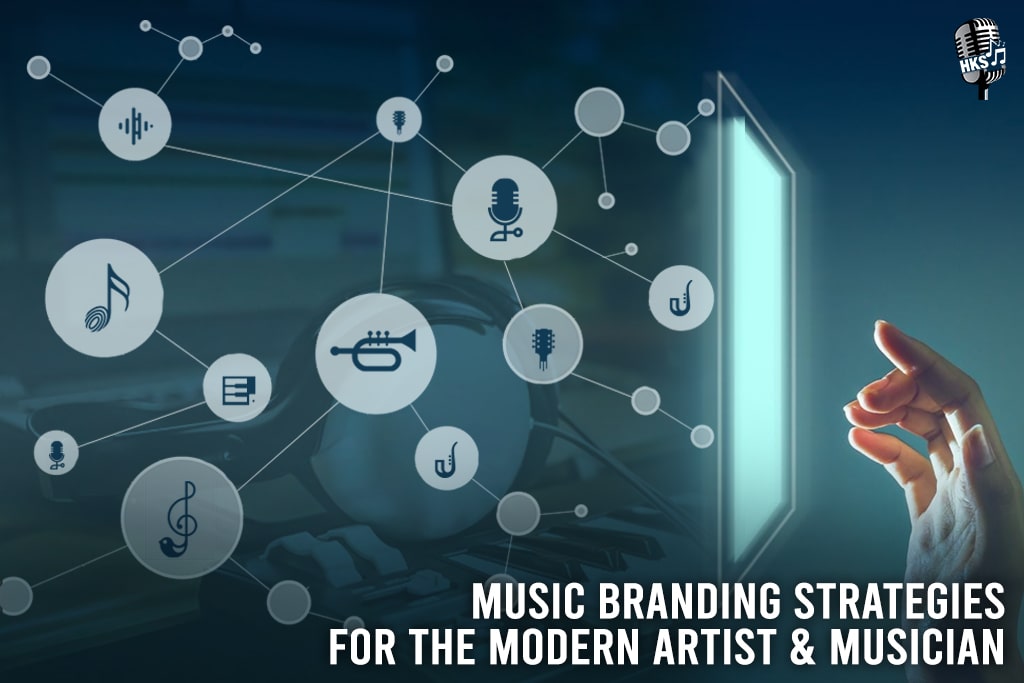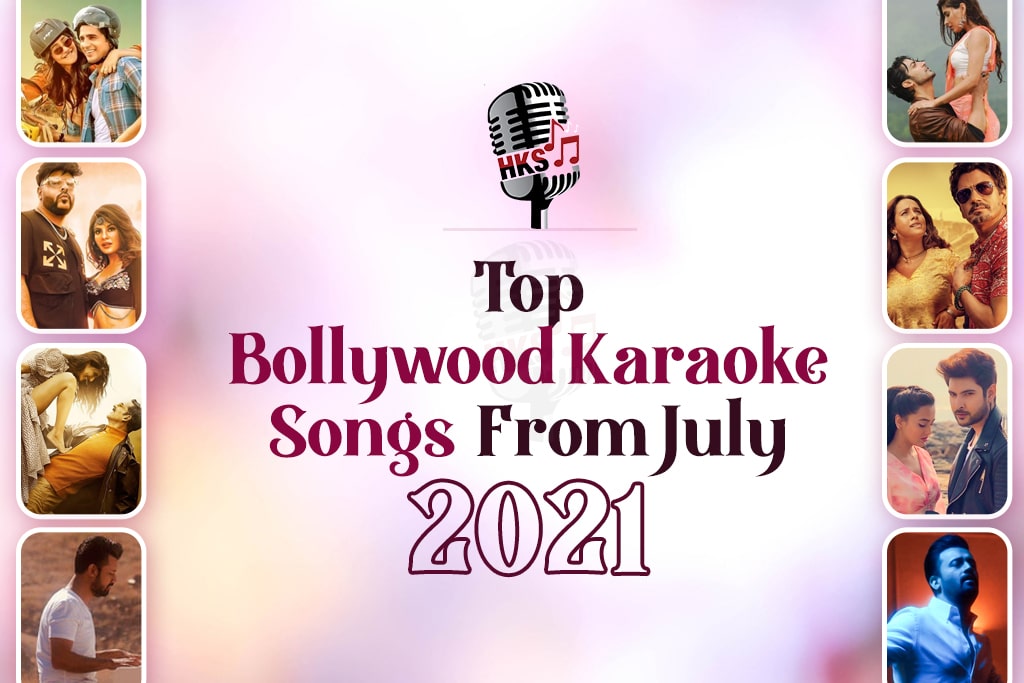Ramzaan Store Wide Sale | 35% Off | USE COUPON CODE - RAMADAN35

We all are very well aware that it's not just the sound of the music that helps musicians and artists to grow from the business perspective. So, what encircles the essence of the music produced, the image and personality of the artist, the theme, and everything that revolves around the music piece? It is good Music Branding!
No one can deny that music is also a business, not just a hobby. Even the artists must understand that if they are seriously pursuing music as a career, they must treat it as a business. Additionally, the music industry is growing daily, and the consumer has a lot of options on their plate regarding music compositions, artists, music pieces, and many more; hence to stand out among others, the balance between business and art is crucial. Branding not only acts as a bridge, but it also goes hand-in-hand with the artist's sound.
What is Personal branding?
What is the primary purpose of a sound or music piece? To influence the masses, right? Therefore, personal branding can be defined as an intentional attempt to influence people about an individual to elevate their position in the industry, make them stand out, and help them grow in the music business.
Though personal branding depends upon an individual's own identity, there are six key elements that an individual should keep in mind:
1. Authenticity:
Branding aims to make people feel like they know the individual and can relate to them. Being authentic is simply portraying what you are in real life. The more an artist is authentic in front of people, the more people connect. As they say, "Authenticity builds trust, trust builds following." But it is one of the most difficult at the same time, the easiest task for an artist.
2. Point of view:
As discussed above, an artist needs to stand out, it is very easy to sound like others and remains unheard, but to spread the voice on a larger scale, one needs to have a unique point of view that grabs the attention. Along with the opinion, being unapologetic about it is another factor that leaves an impact.
3. Show up consistently:
In today's world, where people can barely keep details about others in their minds, keeping them glued is another difficult task. Also, confusion, among others, can be avoided by being consistent in different ways. A consistent online image can be built by using the same profile picture, i.e., a specific logo, on all digital platforms and by posting regular content to keep the audience updated.
4. Storytelling:
Keeping the audience emotionally attached to an artist's personality is a significant branding step. Most of the time, people are so attached to the artist's personality rather than the sound. Telling a story is more like presenting a part of yourself and your life in front of the audience, which catches their eye. Letting people know who you are, how passionate you are, your message, and your opinions can be the most crucial factor.
5. Expertise in the same versatility:
Having a target audience is always better; it usually comes when you pick any specific genre and expertise, making the audience stick. While at the same time, the audience might get bored after a certain point, so maintaining the perfect balance between expertise and versatility is very important for an artist. Versatility doesn't always mean switching genres, but it also refers to the accessibility of the content. Be it small or large medium; your content should be accessible to all.
6. Networking:
Building quality connections that can help in career growth will make a huge difference. What could be better than connecting with like-minded people from the industry? While approaching, remember to give more than receive; otherwise, you may lose connections in the long run.
Musician-cum-entrepreneur
All the musicians who intend to sell their music pieces in the industry are entrepreneurs. Along with the art form, they must specialize in business skills. Even if they produce a masterpiece that is not well-branded, all of it goes to waste. Legendary musicians have accepted that in most cases 'it's 80% branding and 20% music, we might have different opinions about this, but it is the only way into the music business.
It is undoubtedly true that art form makes an artist noticeable, but the ultimate goal of every artist is to emerge as a prominent artist in the coming years or become a touring artist. But when we think about it practically, is it possible without the business? I know the answer is NO. Success in the music industry is earned through a proper combination of hard work, goal orientation, and good branding.
Importance of a good team
In the history of music, despite excellent music composition and lyrics, many music pieces could not make a name due to poor graphics and video quality. We can agree that there are things that are equally important as sound in the music piece. Suitable graphics add a definition to the music and capture the audience's attention as it provides them with a brief of the music. Therefore, a good graphic designer acts as one of the most significant assets for a music piece.
Similarly, how a good graphic designer is essential, and creating a PR team who can brand the music piece as well as the artist as a whole is equally important. The branding team is connected to the artist on a personal level; they should understand the message an artist is trying to convey and put his thoughts in the direction to convey the audience.
Also, it is impossible to escape legal matters while getting into any business. Music rights, contracts, and laws can sometimes be confusing for an artist. So before opting for it as a full-time occupation, an artist should hire a lawyer to deal with the legalities.
To conclude, music branding often goes beyond the music itself and creates such a massive buzz and excitement among the audience that they are forced to follow the music. It creates a unique perception of the music and artist; it transforms their personal and professional images by providing an insight into the artist's life and music. When we look at it from the artist's point of view, along with the audience, it is also a source of income for them. Also, new artists and musicians should know that branding is a great move that can take their career to heights, and they should not fear their image being locked as there is always the option of 'Rebranding.'



![10 Bollywood Karaoke Songs That Are Perfect for a Duet Performance [UPDATED]](https://blog.hindikaraokeshop.com/storage/photos/1/Blog_Image_3.jpg)




Dinesh Kumar
3 years ago
Thank you for this informative post. It increases my knowledge about musical branding.
Bhavna
3 years ago
It's a really interesting blog, I really like your writing style.👍👍
dharmendra lawana
3 years ago
Music branding is a kind of art. Being a music composer, I believe that music branding is as much important as music composition is. This blog is a good guide for the beginners and refresher for professionals.
Mehul Singh
3 years ago
These are some awesome suggestions! Thanks for sharing ideas that we've really only recently figured out.
Hemant Tiwari
2 years ago
Music is more than a hobby; it's a business that demands strategic thinking. In a competitive industry, standing out is vital. Enter music branding: it shapes a distinct identity and boosts an artist's standing.
sameer ali
2 years ago
I must say, your blog post on music branding is both informative and thought-provoking. You've touched upon an essential aspect of the music industry—the intersection of art and business—and highlighted the significance of personal branding for musicians and artists.